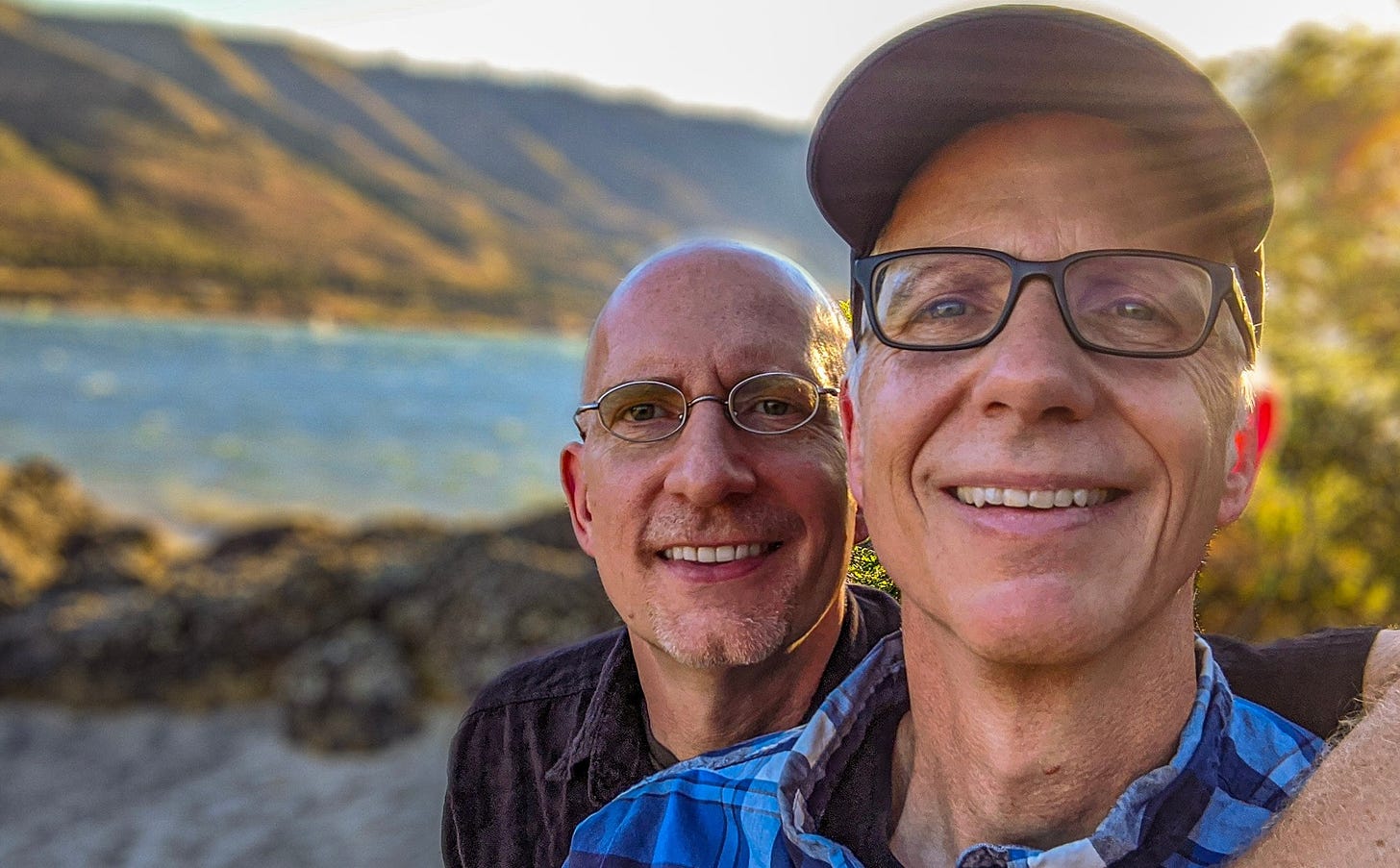This is not another article to tell you how horrible social media is and that you should stop your doomscrolling right this very minute.
Well, okay, maybe it is, but hopefully, it’s still not the article you think.
Earlier this year, Google Fi cancelled my international data coverage.
Google Fi is my phone plan, and they used to sell themselves as the perfect option for international travelers like me: a convenient plan that connects you all over the world.
Never Miss a Beat
Subscribe to our newsletter to stay ahead of the latest LGBTQ+ political news and insights.
In May, they notified me that to continue on the data plan, I needed to live primarily in the United States.
This didn’t make sense to me. Their whole selling point was that they were a travel plan, and all I do is travel. They emphasized the U.S. residency requirement was part of the plan agreement all along, even if they’d never strictly enforced it before.
But that’s not even the point. The point is I no longer had a data plan.
I still had access to Wi-Fi, obviously, but my current phone doesn’t allow for an eSIM, which meant I couldn’t get an international data plan if I wanted to keep my current phone number.
Meanwhile, my husband, Michael, has an eSIM-capable phone, and he made the switch to another data plan. Whenever we were out and about, I decided to try to rely on Michael’s phone, at least until we return to America in January, when I can upgrade my phone.
Now whenever we left the apartment, I didn’t have access to my phone – unless there was Wi-Fi or Michael hotspotted me.
This was frustrating at first. I couldn’t check my messages or email, or my social media! But Michael, feeling my pain, stopped checking his phone too. We began to use his phone only when absolutely necessary.

After about a week, I mostly forgot about it. I’m still surprised how quickly I fell out of the habit of constantly checking my phone. Even at home, I started checking it less.
I was also surprised by how much better I felt.
The past few years, I’ve felt fairly scattered. Like everyone, I attributed it to, yeah, sure, social media. But also the general nastiness of the world.
But now I felt less scattered. I’ve always loved to read, but in the last few years, I’d also noticed that it was becoming increasingly difficult for me to keep my mind from wandering – to resist the temptation to check my phone.
Now it was easier to focus again.
I’ve also always been a pretty great sleeper, but the past few years, my sleep has been noticeably less good. I figured that was just my getting older or maybe our constant traveling.
But no, now that I was less tied to my phone, I was mostly sleeping fantastic again.
As for the general nastiness of the world, well, I started feeling that less too. It turns out that was more about social media and online culture than I’d thought.
Am I less informed now? Maybe, but I still read blogs and newspapers. I actually feel better informed. My perspective seems more about the Big Picture, and less tied to irrelevancies and whatever the Daily Outrage™ is.
But whether I’m better informed or not, I’m definitely happier. I no longer go through the day feeling like the whole world is going straight to hell and that all my political opponents can go right there with it.
And at the risk of being completely insufferable? My interior life is richer now too. My mind wanders again, gently and lazily; it doesn’t just react to stimuli in a never-ending feed in an all-consuming hive-mind.
I’d honestly forgotten my brain used to wander, what daydreaming even felt like.
Truthfully, what worries me most these days is that, in a paradox right out of some Star Trek episode, social media will cause the social collapse we all claim to be so afraid of on, yes, social media.
I also worry that younger generations – people raised on smartphones – are not creating social skills that enable people to manage anxiety and resolve differences. But I realize that this concern just makes me sound old.
Look, I’m obviously not the first person to say that smartphones and social media are rewiring our brains. And I can say with absolute certainty that if I hadn’t had my coverage suddenly canceled, I would have continued interacting with my phone the way I always had.
I’m also aware that, wow, I really do sound sanctimonious here, don’t I?
But I had a chance to conduct an experiment on myself on how my smartphone was affecting my focus and my mood, and the results truly surprised me.
I think that’s pretty interesting, don’t you?
Brent Hartinger is a screenwriter and author, and one half of Brent and Michael Are Going Places, a couple of traveling gay digital nomads. Subscribe to their free travel newsletter here.
Don't forget to share:













